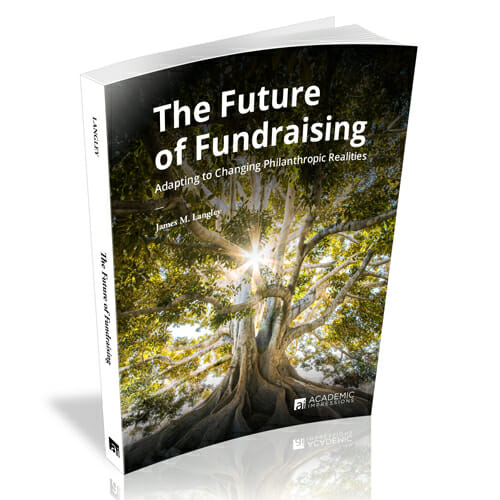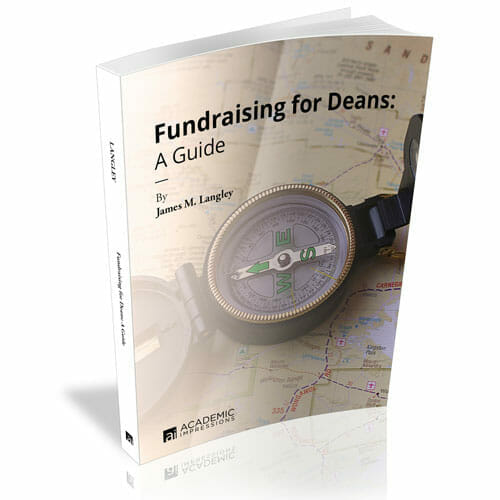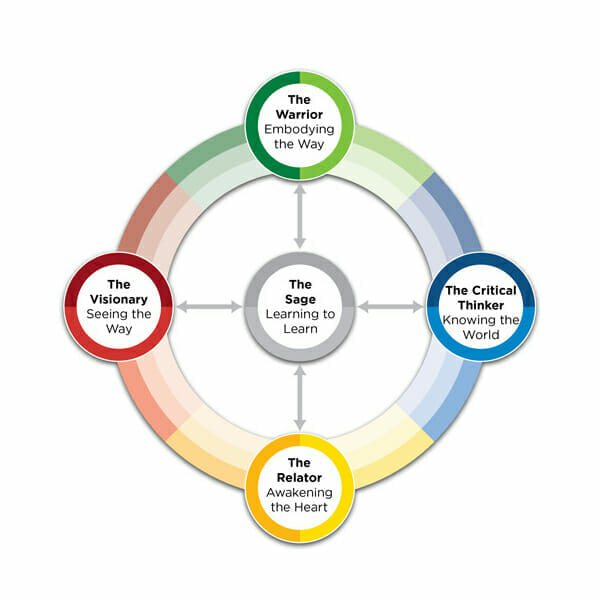Developing a Foundation for Sustained Philanthropic Support: A Certificate Program for Deans and Academic Leaders - October Cohort
This event has ended.

Developing a Foundation for Sustained Philanthropic Support: A Certificate Program for Deans and Academic Leaders - October Cohort
This event has ended.
Engage alumni and donors with collaborative, purpose-driven opportunities that align with their passions.
Event Information
Alumni participation has steadily declined across institutions of higher education in the United States for several decades. And increasingly, donors are taking their philanthropic inclinations to organizations where they can give to specific purposes with targeted outcomes. The most successful deans and academic leaders are attuned to this reality and work in concert with their advancement colleagues to help alumni and donors see how the institution’s capabilities align with alumni and donor passions to make a significant, sustainable difference in society together. Understanding how to facilitate philanthropic engagement from alumni and donors by providing them with portals of purpose to give through your institution, rather than to it, can restore and sustain your student experience and alumni affinity for years to come.
Join us for a five-week certificate program designed to teach you how leadership, collaboration, and philanthropic vital signs can combine into a larger strategy to strengthen donor engagement with your unit. Specifically, you’ll learn:
- Leadership: What your leadership style looks like in both normal and stressful situations, as well as how you can adapt your style while interacting with alumni and donors.
- Collaboration: How to strengthen relationships with colleagues to foster a culture of philanthropy.
- Philanthropic Vital Signs: The four elements of a healthy fundraising operation—appreciation, affiliation, agency, and accountability—and how to use them to make alumni and donors feel valued.
As a culminating activity, you will create an action plan for the year ahead focused on improving collaboration and the health of your philanthropic vital signs, and you’ll discuss with your peers how to overcome any barriers you may face to implement it.
Who should attend?
Current or aspiring deans, assistant or associate deans, center or institute directors, chairs, and other academic leaders will benefit from this course. If you are looking to improve your partnerships with colleagues, alumni, and donors and create a thriving culture of philanthropy, you will benefit from this experience.
Agenda
Week 1 – Understanding Your Leadership Style: The Five Paths to LeadershipSM Self-Assessment
Starting: October 21, 2024 | Live Session: October 24, 2024 (12:00 – 1:30 p.m. ET)
Format: On-Demand and Live | Approximate Time Commitment: 2 hours
Developing self-awareness as an academic leader can enable you to collaborate more effectively with colleagues, alumni, and donors. To begin our time together, you will complete the Five Paths to LeadershipSM Self-Assessment and examine your natural leadership style under both normal and stressful circumstances. Using this framework, you will consider how you show up in conversations and opportunities related to philanthropy for your academic unit.
Week 2 – Connecting Leadership, Collaboration, and Philanthropic Facilitation
Starting: October 28, 2024
Format: On-Demand | Approximate Time Commitment: 1 hour
Collaboration is a critical component of fostering a culture of philanthropy for your academic unit. How well you interact with colleagues can influence the outcomes you are able to achieve with alumni and donors. This week, you will consider what internal relationships you need to nurture to support your institutional efforts to strengthen alumni affinity and donor participation.
Week 3 – Creating the Conditions for Sustained Philanthropic Support: Part I
Starting: November 4, 2024
Format: On-Demand | Approximate Time Commitment: 2 hours
This week you will be introduced to a purpose-driven model of philanthropy, supported by the four philanthropic vital signs that indicate the health of a fundraising operation—appreciation, affiliation, agency, and accountability. You will consider what you know about alumni appreciation and practice listening to donors through discovery conversations. In doing so, you can identify pathways for them to give through your institution, rather than to it.
Week 4 – Creating the Conditions for Sustained Philanthropic Support: Part II
Starting: November 11, 2024
Format: On-Demand | Approximate Time Commitment: 1.5 hours
Eighty percent of volunteers contribute philanthropically to the organizations to which they give their time. This week, you will explore ways in which you can develop opportunities for alumni and donors to meaningfully engage with your academic unit to strengthen their affiliation. You will begin identifying portals of purpose that align with donor passions and drafting whitepapers that give donors agency to make a significant, sustainable difference in the world. You’ll also consider how collaboration is critical to demonstrating the impact of donor giving.
Week 5 – Reflecting on Your Role in Philanthropic Facilitation
Starting: November 18, 2024 | Live Session: November 21, 2024 (12:00 – 1:30 p.m. ET)
Format: On-Demand and Live | Approximate Time Commitment: 3 hours
You’ll bring together everything you’ve learned through reading and examining a case study to identify how leadership, collaboration, and the philanthropic vital signs lead to successful philanthropic facilitation with a donor. You’ll also create an action plan for the year ahead focused on improving collaboration and the health of your philanthropic vital signs, and you’ll discuss with your peers how to overcome any barriers you may face to implement it.
See Full Program Details
Learn more about the program, how it works, who it was designed for, and when new cohorts will begin.
Optional Executive Coaching
For those who choose to add on our Executive Coaching package, you will receive 6 sessions of executive coaching and will be paired with a coach who has extensive experience in higher education.
You may also be interested in
Tagged In
Member Exclusive
Already a member?
Login to access this member exclusive content.







